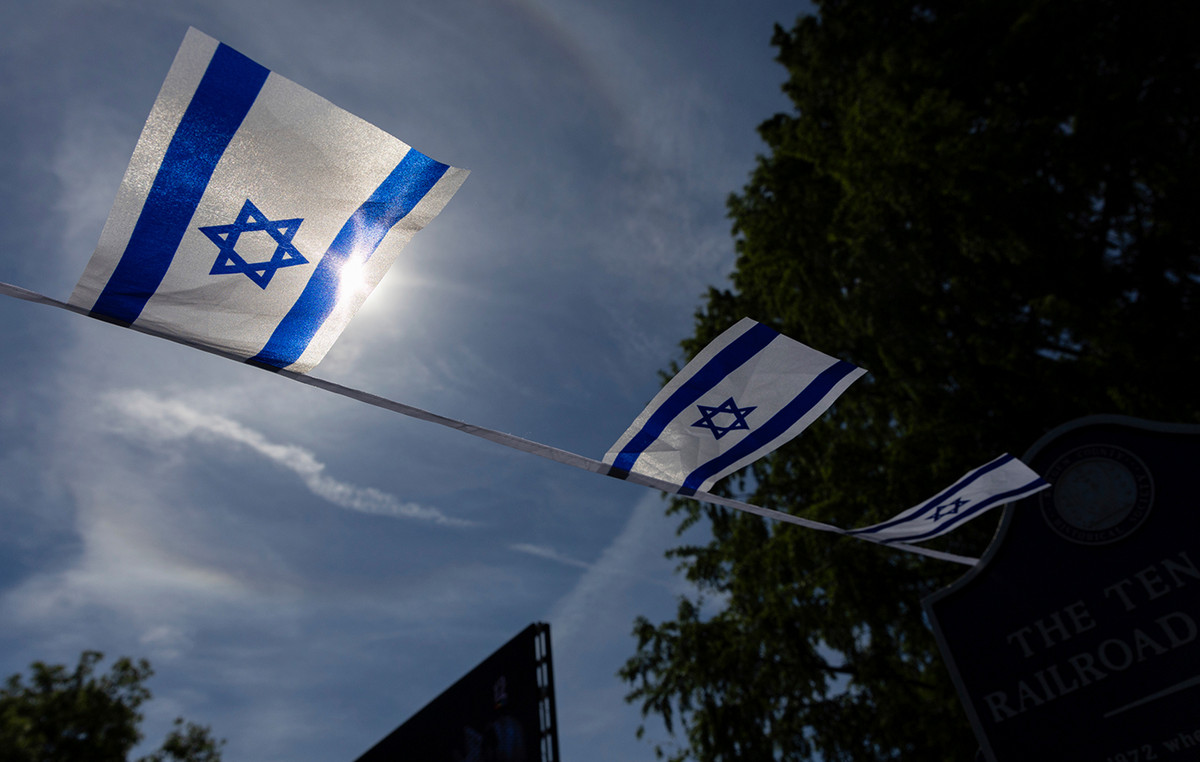A burqa-wearing college student has become a symbol of resistance in the Indian state of Karnataka, where religious tensions are rising over the right to wear religious clothing at school.
Muskan Khan was handing in a university assignment in the city of Mandya when she was approached by a group of Hindu men wearing saffron-colored scarves – the color of India’s ruling BhaMuskan Khanratiya Janata (BJP) party – according to a video posted on social media.
The men harass her as she crosses the school grounds, demanding that she take the covering off her face, but instead of obeying, Khan yells “Allahu Akbar” as she raises her fist in the air.
The clash illustrates the religious divide that has grown in Karnataka since a group of girls began protesting outside their school in January after they were denied entry to the classroom for wearing hijab.
The girls petitioned the state’s top court to lift the ban, prompting rival protests from right-wing Hindu students. The court referred the suit to a larger panel of judges, but no date has been set for a hearing.
Ashok Swain, a UNESCO representative, shared the video of the moment when Muskan Khan is chased by the group of men.
A lone Muslim girl on the way to her college in Karnataka, India is being heckled and harassed by a Hindu right-wing mob for wearing a hijab! pic.twitter.com/DiVjCbqpdW
— Ashok Swain (@ashoswai) February 8, 2022
Activists say the dispute is yet another example of a broader trend in India – which has seen a crackdown on India’s minority Muslim population since Prime Minister Narendra Modi’s BJP came to power nearly eight years ago.
They say that by denying Muslim women the choice to wear the hijab, the government is denying their religious freedoms, enshrined in the Indian constitution.
“This is a massive attempt by the BJP to homogenize Indian culture, to make it an exclusively Hindu state,” said 23-year-old Muslim activist Afreen Fatima. “Muslim women are isolated in India. And the situation is getting worse every day.”
use of hijab
What started as a small protest made national headlines after several other government-run educational institutions in Karnataka denied entry to students wearing hijabs.
Since then, the protests have spread to other cities. Dozens of students took to the streets in India’s capital Delhi this month, holding placards and chanting slogans to express their outrage over the ban.
On Tuesday, Karnataka ordered all schools and colleges to close for three days amid rising tensions. And authorities in the state capital, Bangalore, banned protests outside schools for two weeks.
For many Muslim women, the hijab is an integral part of their faith. Although it has been seen as a source of controversy in some Western countries, in India it is neither prohibited nor restricted for use in public places.
Karnataka’s education minister, BC Nagesh, said he supports a ban on hijab in educational institutions, citing the state’s mandate on religious attire. “The government is very firm in saying that the school is not a platform to practice dharma (religion),” he told the affiliate of the CNN.
But experts say the issue goes deeper than a dress code. According to lawyer Mohammed Tahir, who represents a group of petitioners in court, Karnataka is a “hotbed” of Hindutva ideology supported by many right-wing groups, which seek to make India the land of Hindus.
The state has banned the sale and slaughter of cows, an animal considered sacred to Hindus. It also introduced a controversial bill that makes it difficult for interfaith couples to marry or convert people to Islam or Christianity.
For Tahir, religious tension in the state is likely to escalate ahead of state elections next year. “These issues (like the hijab ban) are very easy to polarize the entire community by votes,” he said.
THE CNN tried to contact state authorities but received no response.
Muslim women in danger
The hijab dispute follows a series of online attacks against Muslim women in India. In January, the Indian government was investigating a website that pretended to offer Muslim women for sale. It was the second time in less than a year that such a fake online auction had sparked outrage in the country.
“They came after us online,” said Fátima, who appeared on the app. “Now, they are directly targeting our religious practice. It started in college and grew. I have no reason to believe it will end there.”
This week, Malala Yousafzai, winner of the Nobel Peace Prize, spoke out about the tensions. “The objectification of women persists – for using less or more. Indian leaders must stop the marginalization of Muslim women,” she wrote on Twitter.
India Student Federation President VP Sanu criticized the hijab ban, saying it was used “as a reason to deny Muslim women’s right to education”.
Modi briefly referred to Muslim women in a speech in Uttar Pradesh as the state began voting in local elections. The prime minister said his government “stands with all Muslim women victims”.
He did not cite the ban on the hijab, but said the government has given Muslim women “freedom” by eliminating the controversial Muslim practice of the triple talaq, which allows a Muslim man to divorce his wife by simply saying the Arabic word for divorce. , “talaq”, three times.
The Indian government criminalized the practice in 2019.
Source: CNN Brasil
I’m James Harper, a highly experienced and accomplished news writer for World Stock Market. I have been writing in the Politics section of the website for over five years, providing readers with up-to-date and insightful information about current events in politics. My work is widely read and respected by many industry professionals as well as laymen.







